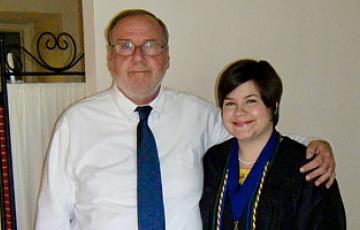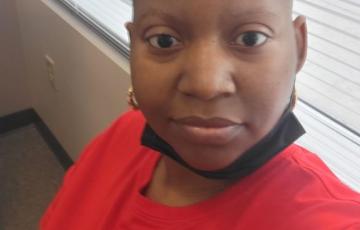Search Results
Resources for Survivors
Survivorship WorkbookUse this Survivorship Workbook to collect all the important information you need throughout diagnosis, treatment, follow-up care and long-term management of a blood cancer.
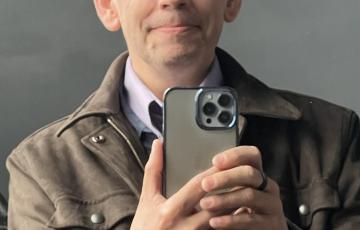
David
I am a proud, 52-year-old stage 4 Hodgkin lymphoma (HL) survivor now living in Los Angeles again (my long-time home). I was living in Cleveland to help with some family matters for a couple of years. I found a great new job in Los Angeles, and the very day I accepted the new job, I received my diagnosis (August 25, 2022). That put my life on hold.
Your Treatment Team
Oncologists and hematologists are specialists who treat persons with leukemia, lymphoma, myeloma, myelodysplastic syndromes and myeloproliferative diseases. Pediatric hematologist oncologists treat children, adolescents and some young adults who have blood cancers. The oncologist or hematologist-oncologist coordinates a treatment and follow-up plan that involves other doctors as well as nurses, social workers, case managers and nutritionists.

Stephanie
Ever since I saw my dad run the New York City Marathon in 2019, I knew it was something that I wanted to strive toward. When the pandemic hit in 2020, I put that dream on pause to start a full-time job as a clinical research coordinator for bone marrow transplants.

Emilee
In 2021, at the age of 19, I was diagnosed with acute myeloid leukemia (AML). I received three rounds of aggressive chemotherapy before having a bone marrow transplant at Stanford. From that point on, I have stayed in remission with no evidence of disease. I am now 21 years old, and a full-time student with three jobs!

Dr. Rafael Bejar
I am a physician-scientist with a primary focus on treating and understanding blood cancers like MDS and AML. It's a job I love and one that has given a lot back to me over the years. However, it was also a very unlikely outcome for me. I was born in Montevideo, Uruguay where I lived until I was 5 years old. My parents were both recently minted physicians facing bleak job prospects in a hostile political environment at home who bravely sought out better opportunities abroad for themselves and their two children.
Long-Term and Late Effects For Cancer Survivors
Blood cancer survivors don't always have serious long-term or late effects of treatment. For those who do, some long-term effects, such as fatigue, can linger for months or years after therapy. Late effects, such as medical conditions like heart disease and other cancers, don't appear until years after treatment ends. Effects can range from mild to severe.
Talk with your doctor about possible long-term and late effects. Your risk for developing long-term or late effects can be influenced by your:

Mya
It was the end of my senior year in high school, and I was thrilled to be admitted into NYU’s Tisch School of the Arts to achieve my double bachelor's. I worked hard. Despite the many restrictions of the pandemic, I volunteered, performed virtually, and worked two jobs all in preparation for a bigger life.
Tuesday
Well, it all started when I felt sick all the time, not knowing what was going on with me, and the doctors couldn't figure it out either, so they would give me pain medicine and other medicines for pain. I had backaches all the time, symptoms of pregnancy and not pregnant, and I was feeling tired and fatigued all the time. I was living day-to-day, not knowing the whole time I really was sick on the inside.

Jessica
I'm a 32-year-old woman, and I battled stage III nodular sclerosis Hodgkin lymphoma (NSHL) from ages 27 to 29. It started with the base of my throat being enlarged to experiencing every symptom you could possibly get from this disease as I was misdiagnosed for a year straight. My cancer was diagnosed as . . . wait for it . . . allergies. For a year. Once I was officially diagnosed in October 2021, I had my staging PET scan which revealed I was riddled with tumors in my head, neck, chest, and near my liver.

Mia
As Mia started her third grade year at elementary school she began complaining of pain in her legs. At first, her mom just thought it was normal growing pains. But then Mia started sleeping a lot more, lost her appetite and just didn’t have her normal level of energy. Mia’s parents, Alma and Ernesto, decided it was time to take her to the doctor.
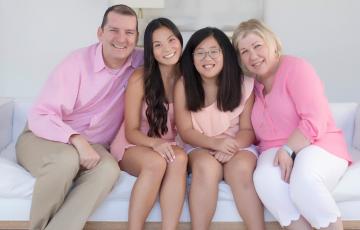
Stephanie
I was diagnosed with stage 2 Hodgkin lymphoma (HL) in 2000 and had seven months of chemotherapy (ABVD) and 20 rounds of radiation. I have not had a reoccurrence of HL, but in 2014, I was diagnosed with chronic lymphocytic leukemia (CLL). I see my oncologist every four months to check my white blood count, and so far, I am still in a watch-and-wait situation. I work full-time in a high-level, stressful job, have two children, and thankfully, have the energy to do it all and have not had to resort to any treatment yet.
Financial and Legal
Balancing WorkThe many responsibilities of caring for someone often leads to job conflicts. Work is a financial necessity and a major source of personal satisfaction, but for many caregivers, it is often difficult to balance the twin responsibilities of caregiving and working. Each caregiver’s working conditions are different. Talk to your supervisor and look in the employee handbook or other human resources publications to learn about your company’s policy on caregivers.
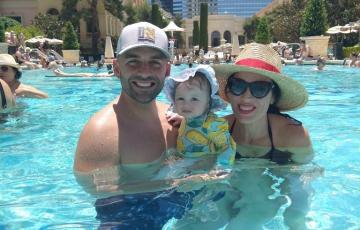
Michele
I was recently diagnosed with chronic lymphocytic leukemia (CLL). My mom passed away from pulmonary fibrosis right before Thanksgiving 2022. She never smoked and had none of the risk factors that led to that type of disease. So, I thought I would get a physical to make sure I was healthy. I have a 2½-year-old daughter, and I am an older mom, so I figured I should make sure my lungs were healthy. I didn't even have a primary care physician, so I asked my good friends for a recommendation.
Cristina
My story begins in October of 2018. I had recently graduated from college, moved away from home for the first time, settled into my own apartment, and started a full-time job. I felt like I was on the verge of greatness with all of these new and exciting beginnings in my life. I didn't know that I was about to have another massive beginning... the beginning of my battle with Hodgkin's Lymphoma. I was sitting at a cancer fundraiser dinner, anxiously twirling the spaghetti on my plate. I had a gut wrenching feeling in my chest that something was wrong.

Lisa
As a new graduate with a master’s degree in psychology, I, among many others, am applying to jobs out in the 'real world.' Recently, one of the job applications asked me to describe myself in three words. My answer consisted of adjectives such as determined, capable and diligent. The one word that best describes me though is one I did not say, and that is survivor.
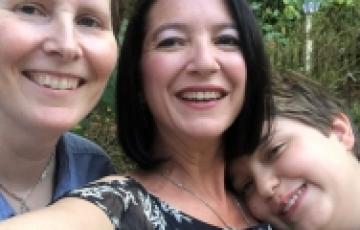
Tricia
My story is truly about the little family that could. In 2002, I felt I had it all: a loving partner, a new job offer, and plans to start a family. Upon my return from a business trip in May, that feeling shifted as a large lump appeared on the side of my neck. Several doctor visits, tests, and sleepless nights later, I received a phone call on the way to a meeting from a doctor. He asked me to pull the car over. He told me I had cancer. Everything stopped.

Elmer
Hey, I appreciate the work of The Leukemia & Lymphoma Society (LLS). I did the Facebook fundraiser in honor of my friend Mr. Larry in Florida who is now in remission after being diagnosed with leukemia. He’s a dear friend of mine, and he has a lot of courage and determination to beat this illness. I wanted to do this to help raise money for LLS and for all those who face an uncertain future. I’m planning to do 31 days instead of just 21 because I feel many people exceeded their miles per day in very cold conditions while I just walked mine inside on the job where I walk a lot.
Cancer-Related Fatigue
Fatigue is very common in patients with blood cancers. Cancer-related fatigue (CRF) is characterized by excessive and persistent exhaustion that interferes with daily activity. CRF often begins before cancer is diagnosed, worsens during the course of treatment and may persist for months—even years—after treatment ends.
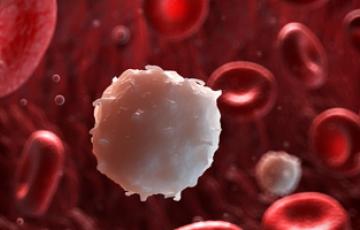
Leukemia vs. lymphoma: What you need to know
Table of contents
Chris
In 2008, my primary doctor noticed that my white blood cells were high (12,000 range) and referred me to a hematologist. The hematologist decided to "wait and see" for a while. From 2008 to 2018, we watched as my white cells slowly grew from 12,000 to 207,000. The oncologist then prescribed and 8-hour infusion of Rituxan. As I sat in the recliner chair with needle in arm, I got several violent reactions from the Rituxan and they pulled out the needle. The doctor told me that I needed a drug called Imbruvica (Ibutrinib). I was
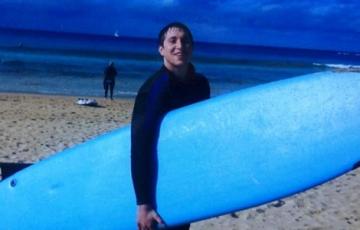
Kathie & Dave
Dave and I have been a part of The Leukemia & Lymphoma Society (LLS) since 1998. I can’t even remember how many Team In Training events we’ve done. We have both done at least one a year if not more since Michael, our son, was diagnosed.
This picture explains it all. Michael was 5 years old when he was diagnosed and of about 10 kids going through treatment with him at the time, I think only he and another are still here today. I know the statistics should be better but that’s the reality for us.
Reid
I was diagnosed with chronic lymphocytic leukemia (CLL) in May 2022. It was a rough time with 10 blood transfusions, weeks in the hospital, and learning a new “normal”.
But that is not my story.
